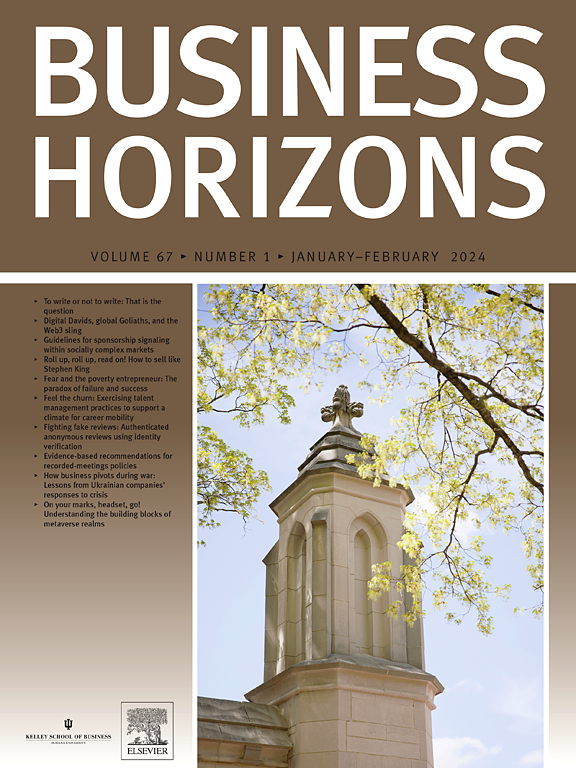Business and violent conflict as a multidimensional relationship: The case of post-Reformasi Indonesia
IF 7
3区 管理学
Q1 BUSINESS
引用次数: 0
Abstract
The private sector and multinational companies (MNCs) have become an important part of the peace and conflict landscape. This article uses the Indonesian context to explore the foreign MNC-conflict relationship in the manufacturing sector and to add nuance to existing debates on the potential of MNCs in providing peacebuilding support via their investment or operational impacts or their potential negative effects. We analyze the effects of various dimensions of corporate investment-based presence on violent conflicts, utilizing a cross-sectional model at the district level. We find that in industrial subsectors that are upward in the value chain, intensive in raw materials, and entail low-skilled work (e.g., heavy industries, food and tobacco), foreign firm presence exacerbates local violent conflicts. Results in other sectors further down the value chain confirm the potentially positive role of MNCs in peacebuilding. These findings are also relevant to the wider CSR literature in that the relationships between host countries and MNCs in fragile or conflict-ridden areas are more complex than previously acknowledged, calling for additional research into sector-specific variances on business impacts in fragile and conflict-affected settings.
商业和暴力冲突作为一种多维关系:后改革印尼的案例
私营部门和跨国公司(MNCs)已成为和平与冲突领域的重要组成部分。本文以印度尼西亚为背景,探讨了外国跨国公司与制造业的冲突关系,并对跨国公司通过投资或运营影响或潜在负面影响提供建设和平支持的潜力进行了细微的讨论。我们利用地区层面的横截面模型,分析了企业投资在暴力冲突中的各个维度的影响。我们发现,在价值链上游、原材料密集型和低技能工作(如重工业、食品和烟草)的工业子部门,外国公司的存在加剧了当地的暴力冲突。价值链下游其他部门的结果证实了跨国公司在建设和平方面可能发挥的积极作用。这些发现也与更广泛的企业社会责任文献相关,因为东道国与脆弱或冲突地区的跨国公司之间的关系比以前认识到的要复杂得多,因此需要进一步研究脆弱和受冲突影响地区的业务影响的具体部门差异。
本文章由计算机程序翻译,如有差异,请以英文原文为准。
求助全文
约1分钟内获得全文
求助全文
来源期刊

Business Horizons
BUSINESS-
CiteScore
17.70
自引率
5.40%
发文量
105
期刊介绍:
Business Horizons, the bimonthly journal of the Kelley School of Business at Indiana University, is dedicated to publishing original articles that appeal to both business academics and practitioners. Our editorial focus is on covering a diverse array of topics within the broader field of business, with a particular emphasis on identifying critical business issues and proposing practical solutions. Our goal is to inspire readers to approach business practices from new and innovative perspectives. Business Horizons occupies a distinctive position among business publications by offering articles that strike a balance between academic rigor and practical relevance. As such, our articles are grounded in scholarly research yet presented in a clear and accessible format, making them relevant to a broad audience within the business community.
 求助内容:
求助内容: 应助结果提醒方式:
应助结果提醒方式:


